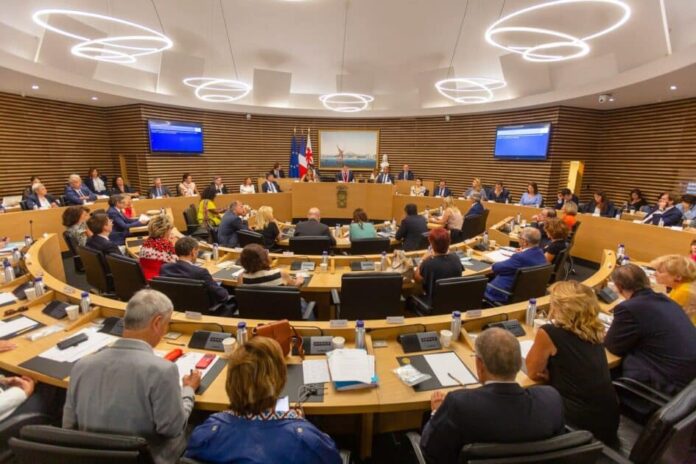Meeting in plenary session this Friday, May 23, 2025, the Nice City Council unsurprisingly adopted the 2024 unique financial account. A budgetary situation deemed stable, marked by enhanced self-financing capacity, maintained investments, and reduced debt. The opposition, however, denounces an unjust fiscal effort and a beautified presentation.
The 2024 unique financial account of the city of Nice was adopted this Friday, May 23, 2025, by the City Council. This tool allows for a consolidated financial overview of the municipality.
According to the figures presented, the results for the year 2024 are better than expected. Operating revenues exceeded forecasts by 4 million euros. At the same time, 8 million euros in expenses were saved. The gross savings thus reach 80.5 million euros, compared to the 68.5 million expected. Therefore, the municipality’s self-financing capacity is significantly improving.
As for investments, they are maintained at 100 million euros. The debt decreases by 4.3 million euros and the debt reduction capacity changes from 16.1 years to 6.75 years. This ratio is lower than anticipated during the initial budget vote in April 2024.
“I absolutely refuse to cut investments. I repeat, it’s the opposite of good management and it sacrifices the future for the present,” asserted Christian Estrosi during his intervention. The mayor of Nice emphasized a “healthy and rigorous” management, which, according to him, allows for investments “without mortgaging the future.”
The municipal priorities—security, quality of life, environment—remain unchanged, as does the support for the associative network. Christian Estrosi insists on continuity: “the commitments made at the time of the budget adoption will be honored. The self-financing capacity will be preserved, investments will be increased, and debt will once again be reduced.”
Oppositions critical of taxation and presentation of figures
Despite these results being presented as solid, several opposition elected officials have expressed their reservations. Jean-Christophe Picard, an ecologist elected official, estimated that this debt reduction was made possible thanks to a significant increase in property tax. “Thanks to your management, we have been forced to increase property tax by 19.8% on buildings,” he recalled. He also pointed out the level of fiscal revenue per inhabitant, indicating that Nice is among the cities where taxes are highest.
Regarding investment, he remains cautious: “a little less debt but less investment.” Philippe Pradal, president of the Finance Commission, responded by linking the rental value to the local quality of life.
On her part, Gaëlle Frontoni described the debt reduction as “cosmetic” and accused the municipal majority of sharply increasing local taxes. She denounced a “tax explosion” and concluded her intervention with a straightforward statement: “you are playing sorcerer’s apprentice with money.”
The response was swift. Marc Concas, deputy in charge of finances, mocked an interpretation he deemed driven by partisan interests. Christian Estrosi, meanwhile, preferred a more conciliatory tone: “I am even convinced that you love your city […] I propose that you defend your city, and I will invite you to represent the voice of the people of Nice in the departmental assembly.”
The debate ended with a declaration from Philippe Pradal who considered the criticisms excessive: “I feel like we have the return of Mister More: we do well but not enough.” He also unexpectedly referenced a quote from the trial of Joan of Arc, to pay tribute to the finance direction. “Why was your banner carried into Reims cathedral at the consecration, rather than those of the other captains? [She responded:] it had been at the suffering, it was rightful that it was at the honor.”
A vote revealing political balances
Despite the criticisms, the municipal majority adopted the unique financial account without difficulty. This vote concludes a budget cycle that began last autumn with the budgetary orientation debate. It confirms the set course: maintain investment, control debt, and improve the city’s maneuvering margins.
The debate around taxation remains lively, and the issue of residents’ purchasing power looms in the background. The opposition stresses the impact of tax increases, while the majority responds with numerical results and the defense of a stable public service.
For the people of Nice, the decisions made today will weigh on future decisions. The discussion on the unique financial account had the merit of highlighting this constant tension between budgetary balance and citizen expectations.


